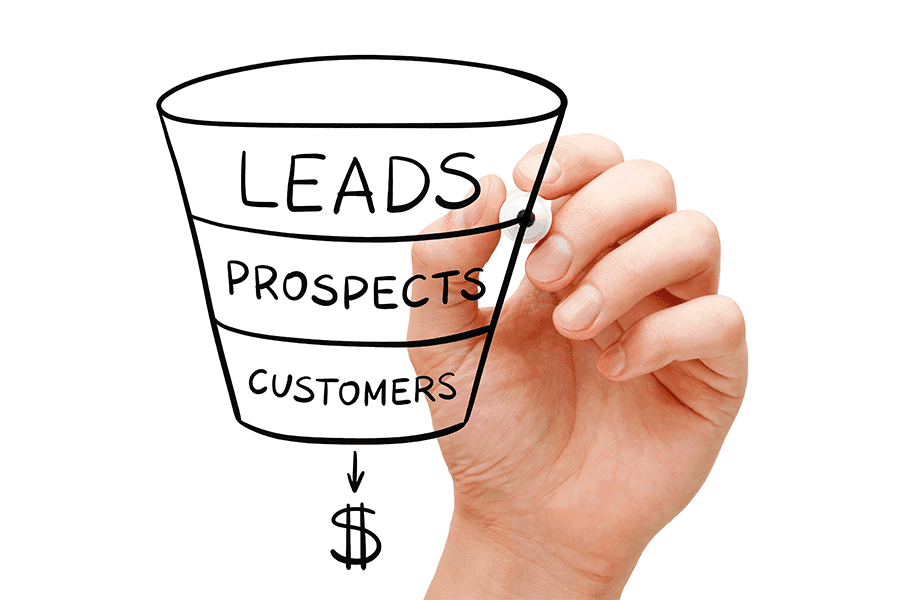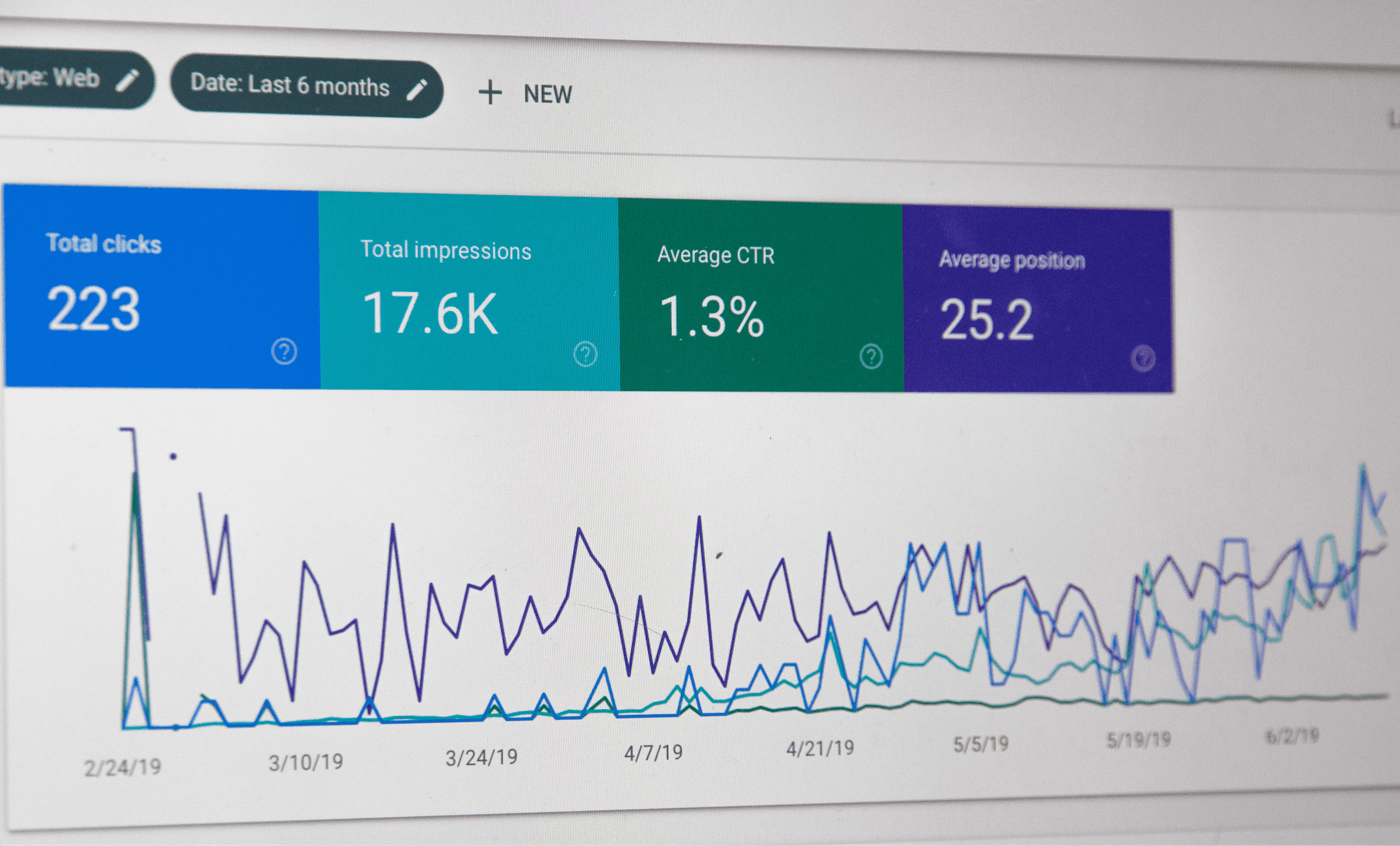How to Use Artificial Intelligence (AI) to Enhance Your Digital Marketing Strategy
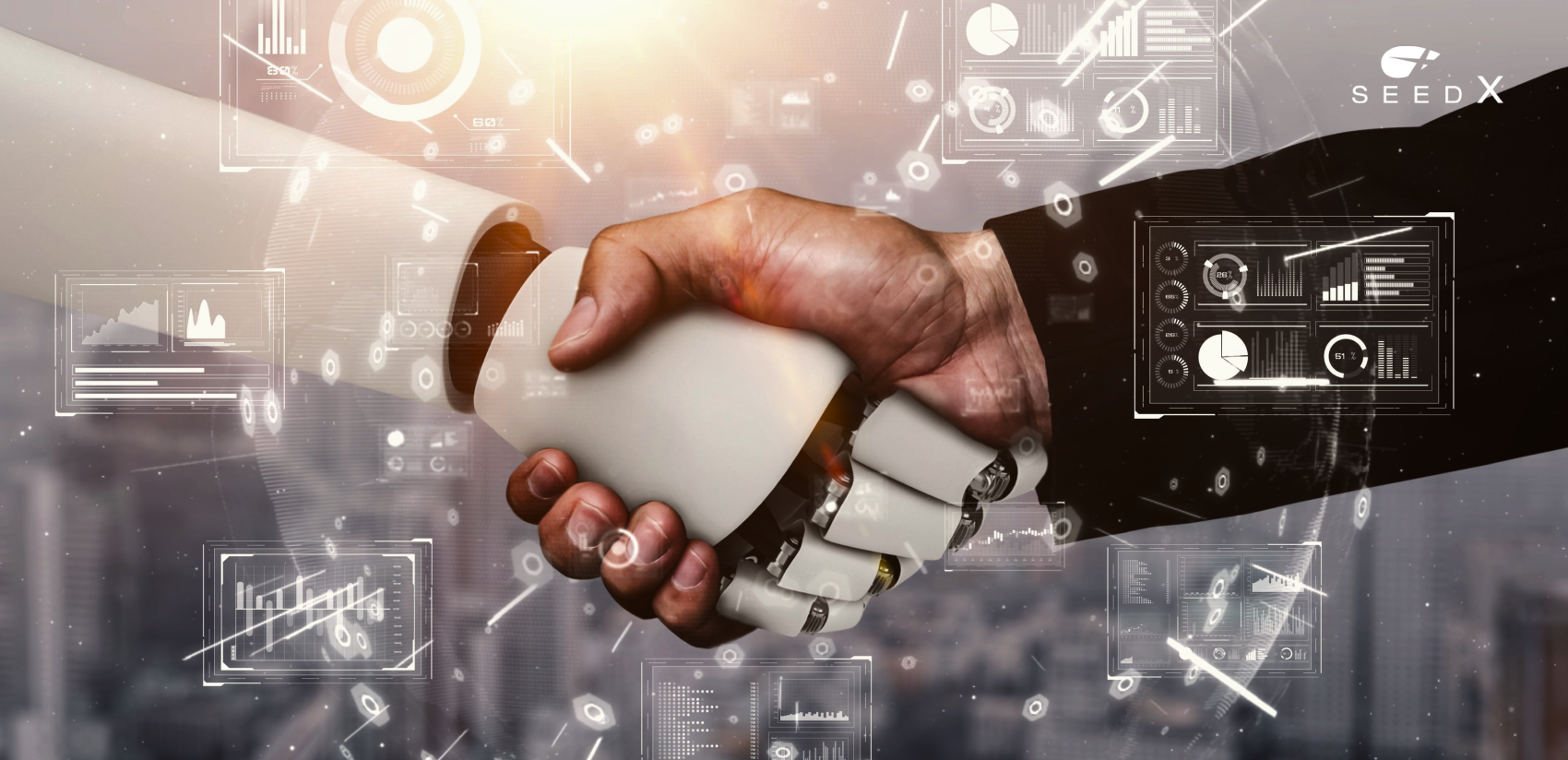
Since the launch of ChatGPT, the landscape of digital marketing as we know it has shifted dramatically. We believe for the first time in history, marketers have been shaken by the power of AI and just how much it can do–so much so that no one knows the extent to which AI will impact the marketing industry. Will it replace marketers? Will it make marketers better at their jobs? Will it change how we do marketing?
While we might not be able to answer all these questions conclusively, we are sure about one thing: AI is here to stay, and it will change how we work. While marketers cannot be replaced, we will need to adopt and learn how to work with AI in order to increase our effectiveness and productivity.
A 2018 McKinsey analysis of more than 400 advanced use cases showed that marketing was the domain where AI would contribute the most significant value. In this article, we will explore the current applications of AI in digital marketing and how you can take advantage of AI.
Coming up:
Benefits of AI in Digital Marketing
How to Use AI in Digital Marketing?
2. Predictive and Targeted Content
4. Promotional Personalization
9. Image Recognition Technology
Examples of Brands Utilizing AI in Digital Marketing
4. IKEA
5. Gap
6. Zeelool
What is AI?

Artificial Intelligence (AI) is a field within computer science that focuses on developing algorithms and computer programs that can perform activities that usually require human intelligence, like visual perception, speech recognition, decision-making, and natural language processing. In simple terms, AI involves creating intelligent machines that are capable of simulating human intelligence by learning from data and making decisions based on processed data.
AI is applied across various industries, including healthcare, finance, transportation, marketing, advertising, and entertainment. It has the potential to change the way we work and improve our quality of life.
Continue reading to better understand how AI contributes to the digital marketing industry.
Benefits of AI in Digital Marketing

1. Higher productivity: AI helps automate repetitive tasks, which improves productivity while saving time and money. By automating repetitive tasks, you can focus on more important tasks, which saves time. According to research, AI has been shown to improve productivity by 40%.
2. Increased efficiency: AI can be used as a substitute for “inefficient work” – any auxiliary tasks that have to be done but do not directly impact the company’s bottom line.
3. Increased Return on Investment (ROI): Due to increased productivity and efficiency, marketing departments experience higher returns on investment. AI eliminates guesswork when creating marketing campaigns, and this helps generate consistent, predictable results leading to more profitability.
4. More profound insights: AI can analyze large amounts of data and accurately forecast audience behaviors, reactions, and buying patterns, leading to better decision-making based on in-depth insights.
How to Use AI in Digital Marketing

1. Chatbots
A chatbot is an AI-driven software that uses AI to determine responses in a conversation or chat. Chatbots are like automated virtual assistants. They can conduct conversations in an auditory or textual format and usually appear as chat windows on computers. Chatbots have been around for a while now, and you may have interacted with them on different websites.
Ideally, they help website visitors find what they are looking for and are used as a substitute for customer service representatives by answering the most common questions, booking appointments, processing payments, rescheduling appointments, etc. The most famous chatbot is Facebook messenger, which many businesses use to interact with their customers. For instance, you can use Facebook messenger to order an Uber ride.
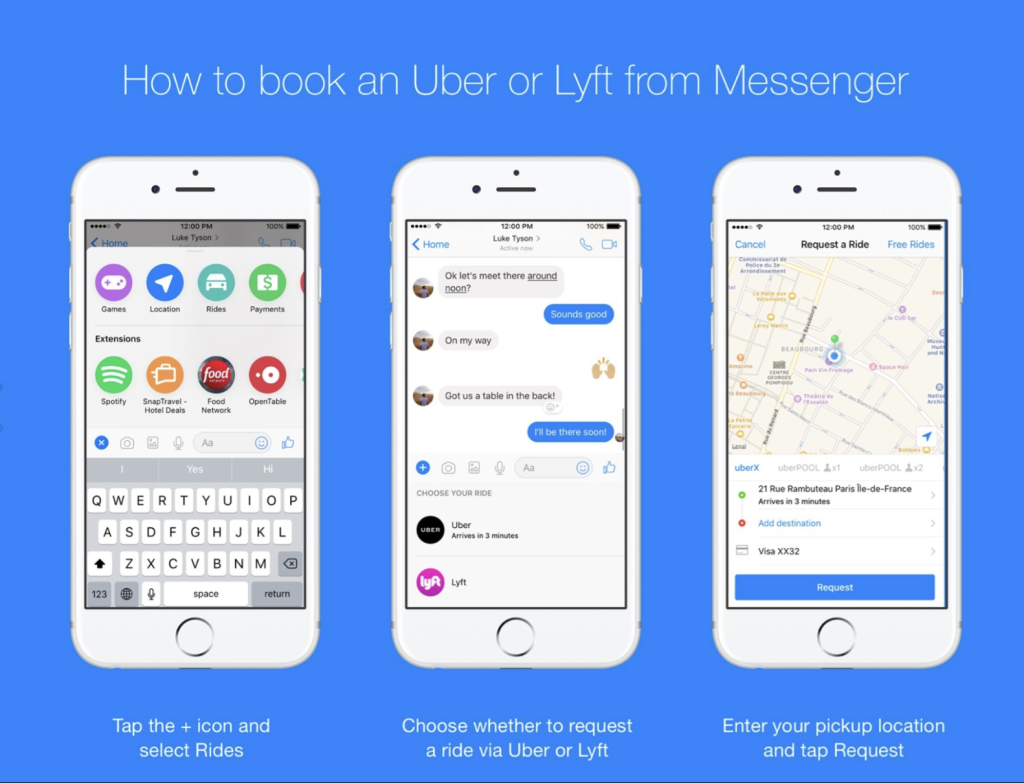
2. Predictive and Targeted Content
AI can be able to predict behavior and patterns in a more granular and accurate way than humans ever could. It gathers and analyzes data available online and uses it to generate audience insights that can help you market to your target audience more effectively. It can also create targeted messaging as it has natural language processing capabilities. All these factors combined make it great at delivering the right email message at the right time by using dynamic content and determining that content based on past customer behavior.
3. Email Marketing
You can use AI to tailor emails to your preferred target audience. AI analyzes customer behavior and helps send more relevant emails by creating subject lines, product recommendations, and messages that are tailored to customer preferences. This can effectively help improve email marketing effectiveness, and performance. AI can also help you personalize your abandoned cart emails based on the items a customer left in their cart. It not only helps persuade them to purchase but also recommends other similar products that they might be interested in.
4. Promotional Personalization
AI can help you personalize your promotion campaigns based on your customer’s history, preferences, and behavior. This leads to more targeted incentives, freebies, and referrals which resonate with customers on an individual level.
5. Internet Searches
Artificial intelligence is transforming how people search on the internet with advancements like voice search. Some of the breakthrough voice assistant technologies in this area include Apple’s Siri, Amazon Echo, Microsoft’s Cortana, and Google Home. Users can search the internet by asking questions or at the touch of a button. This advancement will impact SEO with the focus shifting towards optimizing websites and content for voice search.
6. Website User Experience
With the help of AI, it is now possible to provide different website experiences to different audience segments. Using classification algorithms, you can present offers and content that’s targeted to specific users based on their location, demographics, equipment, engagement with the site, and so on. You might have seen this in action when you land on a specific website and are asked to choose your country, and depending on your selection, the website displays content or products that are only available within your geolocation.
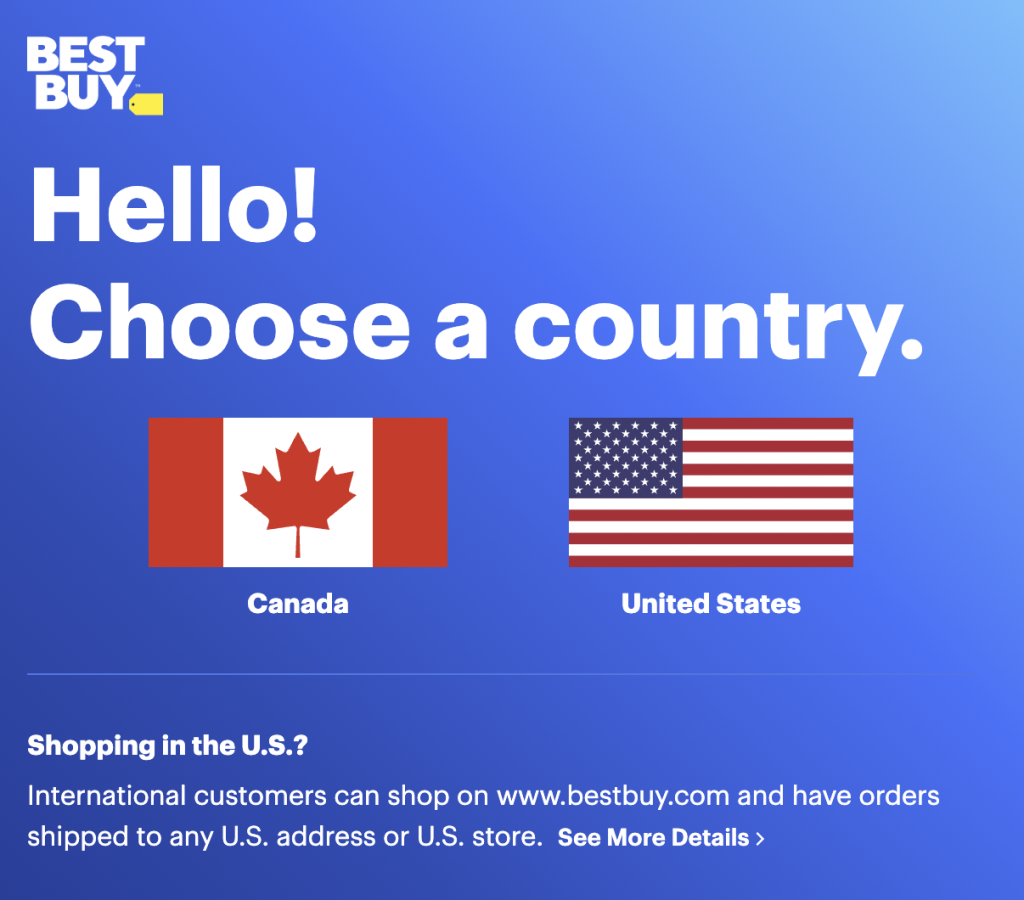
7. Predictive Analysis
Artificial Intelligence is adept at making predictions based on analyzed data. These predictive models can be used within digital marketing to forecast buying trends, turnover rates, when consumers are more likely to buy a product, the best product price, or even when customers are more likely to make multiple purchases.
8. Content Creation
Since the launch of ChatGPT, AI content writing has become a hot topic within the marketing industry. Artificial intelligence has pretty natural language processing capabilities, which make it nifty in producing content. Coupled with its ability to analyze large amounts of data, AI is a big contender in the content creation space. It can help you reduce the amount of time and money it takes to produce content. However, take this with a grain of salt, as Google might deprioritize AI-generated content on the Search Engine Result Page (SERP) with the intent of promoting the most relevant, useful, and reader-focused content.

9. Image Recognition Technology
Image recognition technology can help you automatically organize photos or even share photos automatically with people who appear in them. For instance, when you post a photo on Facebook, the people who appear in it might be automatically tagged since Facebook uses image recognition tech.
Image recognition software can also be used to help customers find similar products within a company’s inventory, e.g., Macy’s image search, which allows customers to upload an image in order to find other products that match the items in the uploaded photo.
Examples of Brands Utilizing AI in Digital Marketing

1. Sephora
Sephora uses a Facebook chatbot that allows customers to reserve appointments at their stores.
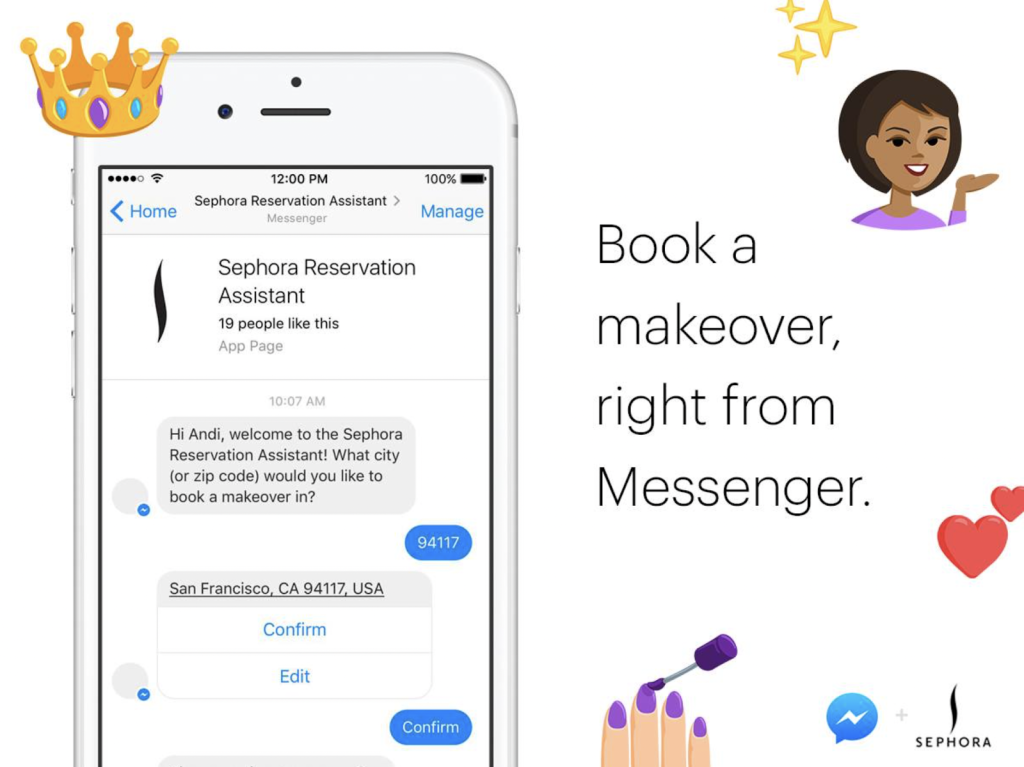
2. Lowe’s
Lowe’s has a LoweBot, which provides personalized recommendations to customers and also monitors inventory levels in real-time.

3. Netflix
Netflix relies on AI technology to improve its user experience and to provide personalized suggestions based on a user’s preferences.

4. IKEA
IKEA uses augmented reality (AR) technology to help customers visualize how furniture might appear in their homes even before they purchase it.

5. Gap
On Gap they have a Size Guide feature that helps customers find the proper fit for any piece of clothing using AI. When a customer adds their measurements, the feature shows you how different sizes will fit you and helps you pick the proper fit.

6. Zeelool
Zelool uses AI to help customers virtually try on glasses before purchasing them. You can upload your picture to see how a pair of glasses fits, or you can use the AR feature to see the glasses in a real-time render.

Conclusion

The impact of AI digital marketing is undeniable. And the only way to stay ahead of the curve is to learn how AI works and leverage it in your marketing strategy.
We hope you enjoyed this article. If you have any questions or need help automating your marketing systems, reach out to us today.






